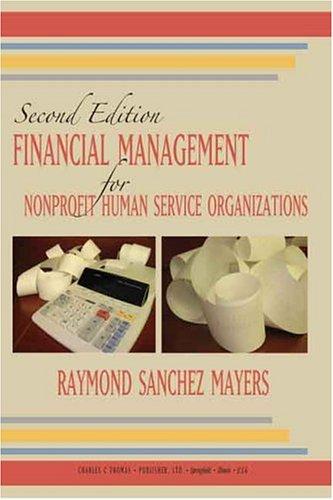Answered step by step
Verified Expert Solution
Question
1 Approved Answer
Gar, Mur and Wil were partners, in a firm, sharing profits and losses equally. Their capitals were not equal. There was no partnership deed. The

Gar, Mur and Wil were partners, in a firm, sharing profits and losses equally. Their capitals were not equal. There was no partnership deed. The firm dissolved on 30th June 2020. The position was as follows, after dissolution: Balance Sheet as of June 30, 2020 Liabilities $ Assets $ Gar capital a/c 2500 Cash 1916 Mur capital a/c 314 Wil capital 263 Loss on realisation 635 2814 2814 Wil became insolvent and could not pay anything against the capital deficiency. A Required Explain the decision that may be taken due to Wil's insolvency. Show workings to support your response. (8 marks) B. In such a case, how the deficiency would be treated by the insolvent partner's capital account? (2 marks) c. Prior to the Garner vs Murray's rule, Mur had raised an objection and claimed that the loss is a capital loss and not a business loss. Therefore, such loss due to capital deficiency of a partner to be borne in capital ratio and not in profit sharing ratio. In court, Mur got the decision in his favour. Explain FOUR (4) points in the Garner vs Murray decision? (10 marks) Gar, Mur and Wil were partners, in a firm, sharing profits and losses equally. Their capitals were not equal. There was no partnership deed. The firm dissolved on 30th June 2020. The position was as follows, after dissolution: Balance Sheet as of June 30, 2020 Liabilities $ Assets $ Gar capital a/c 2500 Cash 1916 Mur capital a/c 314 Wil capital 263 Loss on realisation 635 2814 2814 Wil became insolvent and could not pay anything against the capital deficiency. A Required Explain the decision that may be taken due to Wil's insolvency. Show workings to support your response. (8 marks) B. In such a case, how the deficiency would be treated by the insolvent partner's capital account? (2 marks) c. Prior to the Garner vs Murray's rule, Mur had raised an objection and claimed that the loss is a capital loss and not a business loss. Therefore, such loss due to capital deficiency of a partner to be borne in capital ratio and not in profit sharing ratio. In court, Mur got the decision in his favour. Explain FOUR (4) points in the Garner vs Murray decision? (10 marks)
Step by Step Solution
There are 3 Steps involved in it
Step: 1

Get Instant Access to Expert-Tailored Solutions
See step-by-step solutions with expert insights and AI powered tools for academic success
Step: 2

Step: 3

Ace Your Homework with AI
Get the answers you need in no time with our AI-driven, step-by-step assistance
Get Started


